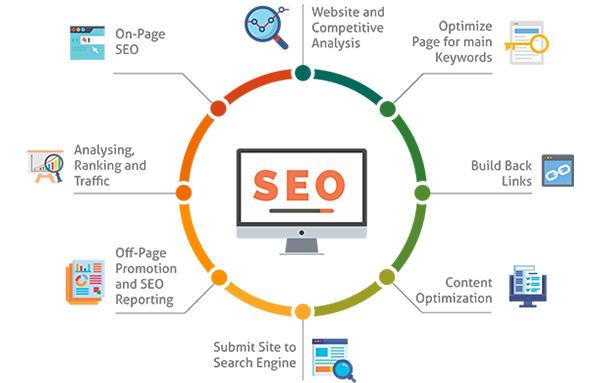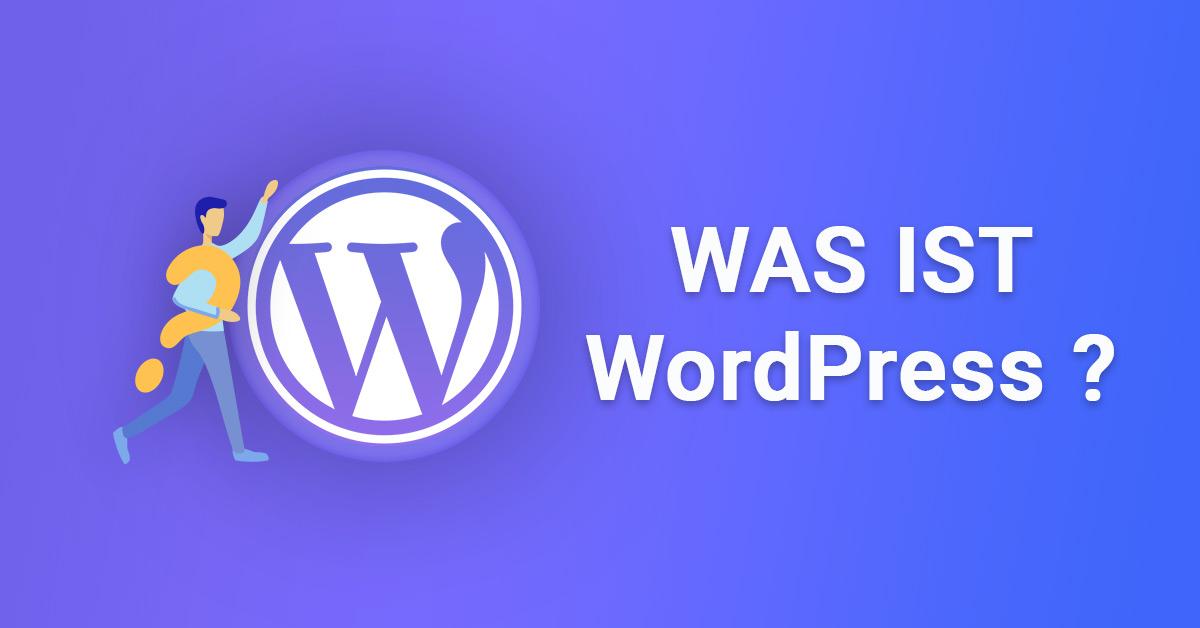Choosing between WordPress.com and WordPress.org can be tricky! WordPress.com is user-friendly and hassle-free, perfect for beginners. Meanwhile, WordPress.org offers more customization and control for those ready to dive deeper. Think about your needs and go for the one that fits best!
WordPress.com vs WordPress.org: Key Differences and Which One You Should Use
When it comes to creating a website, one name often stands out: WordPress. But did you know there are actually two versions of it? That’s right—WordPress.com and WordPress.org are not the same! If you’re feeling a bit confused about which one to choose for your blog, business, or online portfolio, you’re not alone. Each platform has its own unique features, advantages, and, yes, even drawbacks. In this article, we’ll break down the key differences between WordPress.com and WordPress.org, helping you make an informed decision that aligns with your goals. Whether you’re a budding blogger or a small business owner, we’ll guide you towards the option that best fits your needs. Let’s dive in and discover which WordPress is the right fit for you!
Understanding the Basics of WordPress.com and WordPress.org
To fully grasp the differences between WordPress.com and WordPress.org, it’s essential to understand what each platform offers. Both are powerful tools for building websites, but they cater to different needs and expertise levels.
- Easy Setup: You can have a site up and running in minutes.
- No Technical Skills Required: Perfect for beginners who want to focus on content.
- Built-in Security: Automatic updates and backups keep your site safe.
- Upgrade Options: Various paid plans offer more features as your needs grow.
On the other hand, WordPress.org is a self-hosted solution. This provides users with complete control over their website but requires more technical know-how. Here’s what you should consider:
- Full Customization: You can use thousands of themes and plugins to tailor your site.
- Monetization Freedom: You can run ads and monetize your site without restrictions.
- Ownership: You own your content and have full control over your site.
- Advanced Features: Ideal for complex sites with unique requirements.
| Feature | WordPress.com | WordPress.org |
|---|---|---|
| Cost | Free with limitations | Free (hosting fees may apply) |
| Customization | Limited | Unlimited |
| Maintenance | Automatic | User-managed |
| Ads | Not allowed on free plans | Full control |
if you’re looking for a quick, hassle-free way to start blogging or running a simple website, WordPress.com is an excellent choice. However, if you envision a more robust, scalable, and unique online presence, WordPress.org is the way to go. Understanding these basics will help you make an informed decision that aligns with your goals and technical comfort level.
Exploring the Key Differences Between the Two Platforms
When diving into the world of WordPress, one of the first decisions you’ll face is choosing between WordPress.com and WordPress.org. While both platforms share the same foundational software, they cater to different needs and types of users. Understanding these differences is crucial in selecting the right fit for your online presence.
Ownership and Control
One of the most significant distinctions lies in ownership and control. With WordPress.org, you have complete control over your website. You can customize it in any way you desire, install any plugin, and even monetize it without restrictions. In contrast, WordPress.com places limitations on customizations and monetization options unless you opt for a premium plan.
Cost Structure
Cost is another critical factor to consider. Here’s a quick breakdown:
| Platform | Free Plan | Cost for Premium Features |
|---|---|---|
| WordPress.com | Yes | Starts at $4/month |
| WordPress.org | No | Cost of hosting & domain |
While WordPress.com offers a free plan, it often includes ads and limited features. On the other hand, WordPress.org may require an upfront investment in hosting and a domain name, but it allows for greater flexibility and potential revenue generation.
Ease of Use
If you’re a beginner, WordPress.com might seem more appealing due to its user-friendly interface. It’s essentially a “plug-and-play” solution where you can get started with minimal technical know-how. Conversely, WordPress.org may involve a steeper learning curve, as you’ll need to manage hosting, installations, and maintenance. However, this platform empowers you with the tools to tailor your site extensively.
Site Maintenance
Maintenance is another aspect where the two platforms diverge significantly. With WordPress.com, all the maintenance tasks are handled for you. This includes software updates, backups, and security. However, with WordPress.org, you are responsible for these tasks, which can be a daunting prospect for some users. That said, having control over your site’s maintenance also allows you to implement your solutions tailored to your needs.
choosing between WordPress.com and WordPress.org depends on your specific needs, technical skill level, and long-term goals. If you aim for full control and customization, WordPress.org is the way to go. For a more straightforward, less hands-on approach, WordPress.com might suit you best. The decision ultimately shapes your online experience and success.
Evaluating Cost Considerations for Your Website
When choosing between WordPress.com and WordPress.org, evaluating cost considerations is crucial in making the right decision for your website. Both platforms have distinct pricing structures that can significantly impact your budget and overall experience.
WordPress.com operates on a freemium model, which means it offers a basic free plan alongside several paid tiers. Here’s a quick breakdown:
| Plan Type | Monthly Cost | Key Features |
|---|---|---|
| Free | $0 | Basic options, WordPress ads, limited storage |
| Personal | $4 | Custom domain, no ads, email support |
| Premium | $8 | Additional storage, advanced customization, monetization |
| Business | $25 | Plugins, advanced SEO tools, paid themes |
| eCommerce | $45 | Full online store capabilities, payment processing |
Meanwhile, WordPress.org is free to download, but it requires you to handle additional costs like hosting, domain registration, and possibly premium themes or plugins. Here’s a rough estimate of the expenses you might incur:
- Hosting: $3 to $30 per month, depending on the provider and plan
- Domain Registration: Around $10 to $20 annually
- SSL Certificate: Free with some hosts, otherwise $50 to $100 annually
- Premium Themes: $30 to $100 one-time fee
- Plugins: Free to several hundred dollars depending on functionality
While the upfront costs for WordPress.org may seem daunting, it offers greater flexibility and control over your website. You can install custom themes, add various plugins, and even monetize without restrictions. In contrast, WordPress.com’s expenses can escalate quickly if you need advanced features, making it essential to carefully evaluate which plan aligns with your goals and budget.
Ultimately, the choice between these platforms boils down to your specific needs and financial considerations. By weighing the ongoing costs and potential for growth with either option, you can make an informed decision that ensures your website thrives without breaking the bank.

Customization Freedom: Which Platform Gives You More?
When it comes to online publishing, the degree of customization you can achieve is often a deciding factor in choosing between platforms. WordPress.com and WordPress.org present two distinct approaches to customization, each catering to different user needs. Understanding these differences can help you determine which platform aligns best with your vision.
WordPress.com offers a more streamlined experience with its built-in hosting and management features. While it allows for some customization, particularly through themes and limited plugins, users are bound by the platform’s restrictions. Here’s what you can expect:
- Themes: Select from a curated list of free and premium themes, but customization options are generally limited to predefined settings.
- Plugins: Users on the free or lower-tier plans cannot install custom plugins, hampering functionality expansion.
- Custom CSS: Available only on higher-tier plans, limiting design tweaks for casual users.
On the flip side, WordPress.org is the epitome of customization freedom. Being self-hosted means you have full control over your website’s design, features, and functionality. Here’s what you can enjoy:
- Unlimited Themes: Choose from thousands of free and premium themes or create your own from scratch.
- Full Plugin Access: Install any of the thousands of plugins available, enhancing your site’s capabilities as needed.
- Custom Coding: If you have coding skills or hire a developer, you can modify your site’s codebase to create truly unique experiences.
| Feature | WordPress.com | WordPress.org |
|---|---|---|
| Themes | Limited selection | Unlimited options |
| Plugins | Restricted access | Full access |
| Code Customization | No access | Full control |
| Hosting | Managed | Self-managed |
The choice between the two platforms ultimately boils down to your specific needs. If you’re looking for a straightforward setup with minimal hassle, WordPress.com might suffice. However, for those who crave creativity and limitless customization, WordPress.org stands out as the superior choice, empowering users to create a website that truly reflects their brand and vision.
Ease of Use: Which Option is Better for Beginners?
When diving into the world of website creation, newcomers often find themselves at a crossroads between using WordPress.com and WordPress.org. Both platforms have their merits, but for those just starting out, the differences in ease of use can significantly impact your experience and success.
WordPress.com is designed with beginners in mind. Its intuitive interface allows users to set up a website in mere minutes, without needing to worry about hosting, domain registration, or complex configurations. Here’s what makes it particularly beginner-friendly:
- One-Stop Solution: Everything from hosting to security is managed for you.
- Built-in Themes and Plugins: A selection of free themes and plugins that can be easily installed with a click.
- No Coding Required: Users can create and customize their sites using a simple visual editor.
On the other hand, WordPress.org offers greater freedom and flexibility, but it comes with a steeper learning curve. Here are some of the challenges beginners might face:
- Self-Hosting: You’ll need to find a hosting provider, which involves additional steps and costs.
- Technical Setup: Installation of WordPress and database configuration can be daunting for non-tech-savvy users.
- Plugin Management: While you have access to thousands of plugins, managing them can require more technical knowledge.
To help visualize the differences, here’s a simple comparison table:
| Feature | WordPress.com | WordPress.org |
|---|---|---|
| Setup Time | Minutes | Hours |
| Cost | Free with premium options | Variable (hosting + domain) |
| Customization | Limited | Extensive |
| Support | Email and chat support | Community forums and documentation |
Ultimately, if you’re a beginner looking for a straightforward way to create a blog or website without the hassle of managing technical details, WordPress.com may be the way to go. However, if you’re willing to invest the time to learn and seek more customization opportunities, WordPress.org can offer a rewarding experience as your skills grow.

SEO Capabilities: How Each Platform Stacks Up
When it comes to search engine optimization (SEO), both WordPress.com and WordPress.org offer distinct advantages, but they cater to different audiences and needs. Understanding their SEO capabilities is crucial for anyone looking to establish or enhance their online presence.
SEO Features Comparison
| Feature | WordPress.com | WordPress.org |
|---|---|---|
| Customization | Limited | Extensive |
| SEO Plugins | No | Yes |
| Analytics Access | Basic | Advanced |
| Control Over Metadata | Minimal | Complete |
WordPress.com offers a more straightforward setup, which is ideal for beginners or those looking for a hassle-free experience. However, its built-in SEO tools are quite limited. You can use basic SEO features like adding titles and descriptions, but you won’t have access to advanced plugins like Yoast SEO or Rank Math that can significantly enhance your site’s search visibility.
On the other hand, WordPress.org provides full control over your website, allowing for extensive customization. With the ability to install various plugins, you can optimize your content comprehensively. This includes managing meta tags, improving site speed, and integrating Google Analytics for deeper insights into your traffic and user behavior.
Another critical factor is the ability to create and manage your own SEO strategies. With WordPress.org, you have the flexibility to implement advanced techniques like schema markup and XML sitemaps, which are essential for improving your search rankings. In contrast, WordPress.com limits these capabilities, making it more challenging to compete in niche markets where SEO is pivotal.
Ultimately, if SEO is a top priority in your online strategy, choosing WordPress.org is a no-brainer. It not only offers the tools you need to succeed but also the freedom to grow and adapt your SEO practices as your business evolves.

Support and Community: Where to Turn for Help
Choosing between WordPress.com and WordPress.org can be a daunting task, especially when you’re just starting your journey into the world of blogging or website creation. Fortunately, the support and community surrounding both platforms are extensive and can provide the guidance you need to make an informed decision.
For those using WordPress.com, the official support forum is a great place to start. Here, you can find:
- Guides and tutorials on everything from setting up your site to troubleshooting common issues.
- A community of users who share their experiences and solutions.
- Direct access to customer support for quick resolutions to your queries.
On the other hand, if you’re leaning towards WordPress.org, the support system is equally robust but slightly different. You might find:
- Extensive documentation covering various topics, including themes, plugins, and security.
- Active forums where developers and enthusiasts discuss technical challenges and innovations.
- Meetups and WordCamps, offering opportunities to learn from experts and network with peers.
| Platform | Support Type | Community Features |
|---|---|---|
| WordPress.com | Official Support Forum | Community Forums, User Guides |
| WordPress.org | Documentation & Forums | Meetups, WordCamps |
Ultimately, no matter which version you choose, you’re not alone on this journey. Both platforms boast thriving communities filled with individuals eager to help one another. Whether you’re troubleshooting an issue or looking for inspiration, there’s always someone ready to lend a hand.
So take the plunge and explore the resources available. Your questions will be met with answers, your challenges with support, and your ideas with enthusiasm from a community that shares your passion for all things WordPress.

Making the Right Choice for Your Business Needs
When it comes to building your online presence, choosing between WordPress.com and WordPress.org can feel overwhelming. Each platform has its unique advantages that cater to different business needs, and understanding these differences can help you make an informed decision.
WordPress.com is an excellent choice for users looking for a hassle-free, managed hosting solution. It’s ideal for:
- Beginners who want to quickly set up a blog or website without technical expertise.
- Those who prefer not to deal with the complexities of hosting and maintenance.
- Business owners looking for an all-in-one platform with built-in security features.
On the other hand, WordPress.org offers unparalleled flexibility and control, making it more suitable for:
- Developers and advanced users who want to customize their site extensively.
- Businesses needing eCommerce capabilities, as it allows for various plugins like WooCommerce.
- Those looking to monetize their site through ads or affiliate marketing without restrictions.
Here’s a quick comparison to help clarify some key differences:
| Feature | WordPress.com | WordPress.org |
|---|---|---|
| Hosting | Included | Self-hosted |
| Customization | Limited | Extensive |
| Monetization | Restricted | Fully customizable |
| Technical Support | Available | Community-based |
Ultimately, the decision hinges on your specific goals and how hands-on you want to be with your website. If your priority is simplicity and you’re okay with certain limitations, WordPress.com might be the way to go. However, if you envision a highly customized site that can grow with your business, then WordPress.org is undoubtedly the better choice.
Evaluate what features are essential for your business model and future growth. Whichever route you choose, both platforms can help you establish a robust online presence tailored to your unique needs.

Future Growth: Which Option Scales Better?
When considering the long-term potential of your website, it’s essential to evaluate how well each platform can adapt to your evolving needs. Both WordPress.com and WordPress.org offer unique advantages, but scalability becomes a crucial factor when planning for future growth.
WordPress.com is an all-in-one solution that simplifies the management of your website, but it comes with limitations that can hinder growth. As your site gains traffic, you might encounter restrictions on customization and the ability to install plugins. These factors can make it challenging to enhance functionality or optimize user experience without upgrading to higher-tier plans, which can significantly increase costs.
In contrast, WordPress.org provides unmatched flexibility and control. With a self-hosted site, you can:
- Install any plugin or theme you desire.
- Modify the underlying code to tailor your site to your specific requirements.
- Optimize performance as your audience grows without worrying about plan restrictions.
This level of customization and flexibility positions WordPress.org as the more scalable option, particularly for businesses looking to expand their online presence. You can easily upgrade your hosting plan and resources as needed, ensuring that your website can handle increasing traffic without compromising performance.
| Feature | WordPress.com | WordPress.org |
|---|---|---|
| Customization | Limited | Unlimited |
| Cost | Tiered plans | Pay for hosting |
| Plugins | Restricted | Unlimited |
| Control | Minimal | Full |
Moreover, if you anticipate growing your website into a business or e-commerce platform, WordPress.org is undoubtedly the superior choice. With the ability to integrate advanced e-commerce solutions, SEO tools, and analytics, you’ll have all the resources at your fingertips to scale your operations effectively.
Ultimately, as you envision your website’s future, think about the features you’ll need to thrive in an ever-changing digital landscape. Choosing the right platform is a foundational step in ensuring that your site can grow seamlessly and sustainably over time.

Final Thoughts: Choosing the Best WordPress for You
When it comes to selecting between WordPress.com and WordPress.org, your choice ultimately hinges on your unique needs and objectives. Both platforms offer distinct advantages, but understanding these differences will empower you to make an informed decision that aligns with your goals.
Here are some key considerations to help guide your decision:
- Budget: If you’re just starting out and are on a tight budget, WordPress.com offers a free plan, though it comes with limitations. On the other hand, WordPress.org requires you to purchase hosting and a domain, which can be a significant initial investment.
- Control: For complete control over your website, including custom themes, plugins, and monetization options, WordPress.org is the clear winner. If you prefer a more hands-off approach with less technical maintenance, WordPress.com might be more suitable.
- Customization: WordPress.org allows extensive customization through themes and plugins, enabling you to create a truly unique site. Conversely, WordPress.com has restrictions on customization unless you opt for higher-tier plans.
- Purpose: Consider what you’re building. For a personal blog or hobby site, WordPress.com could be enough. However, if you’re planning a business site or an e-commerce store, WordPress.org is better equipped for scalability.
To further illustrate the differences, take a look at the comparison below:
| Feature | WordPress.com | WordPress.org |
|---|---|---|
| Cost | Free with limitations | Hosting and domain fees |
| Customization | Limited | Unlimited |
| Monetization | Restricted | Full control |
| Maintenance | Managed by WordPress | User responsibility |
Ultimately, the best choice boils down to your long-term vision. If you’re looking to cultivate a professional online presence with complete flexibility, WordPress.org is the way to go. However, if you value simplicity and ease of use, and your needs are modest, WordPress.com could serve you well.
Your website is an extension of your brand or personal identity; choose the platform that resonates with your aspirations and capabilities. Consider experimenting with both, if possible, to gain a feel for what suits you best before making a final commitment!
Frequently Asked Questions (FAQ)
WordPress.com vs. WordPress.org: Key Differences and Which One You Should Use
Q1: What’s the main difference between WordPress.com and WordPress.org?
A: Great question! The primary difference lies in who hosts your website. WordPress.com is a hosted platform, meaning your site is managed by WordPress. You don’t have to worry about technical stuff like security or updates—it’s all taken care of for you. On the other hand, WordPress.org is a self-hosted option where you download the software and host it on your own server. This gives you complete control over your site, but it also means more responsibility.
Q2: Is it really free to use WordPress.com?
A: It can be, but with some caveats! You can start with a free plan on WordPress.com, but it comes with limitations—like WordPress ads and a lack of custom domain names. If you’re serious about your website, you’ll likely want to upgrade to a paid plan for more features and customization options.
Q3: What about WordPress.org? Is there a cost involved?
A: Yes, there are costs to consider with WordPress.org. While the software itself is free, you’ll need to pay for domain registration and web hosting. Depending on your hosting provider, this can range from a few dollars a month to a bit more for premium services. However, the investment often pays off by giving you more control and customization for your site.
Q4: Which option is better for beginners?
A: If you’re just starting out and want something simple without the hassle of managing technical details, WordPress.com is a good choice. It’s user-friendly and allows you to focus on creating content. But if you’re eager to learn and want to develop your skills, diving into WordPress.org can be incredibly rewarding and offers much more flexibility.
Q5: Can I monetize my site on both platforms?
A: Yes, but the rules differ significantly! On WordPress.com, monetization options are limited, especially on the free plan. You can use ads, but only on paid plans. In contrast, WordPress.org gives you complete freedom to monetize your site in any way you choose—whether that’s through ads, affiliate marketing, or selling products.
Q6: What about customization? Which platform offers more?
A: WordPress.org wins hands down on this one! With self-hosting, you can install any theme or plugin you like, allowing for a fully customized site that meets your exact needs. WordPress.com does offer some customization options, but they’re restricted to the features available in your plan, especially if you’re on the free or lower-tier plans.
Q7: What if I want to switch later? Is that possible?
A: Yes, it’s possible, but it can be a bit tricky. Switching from WordPress.com to WordPress.org involves exporting your content and then importing it into your new self-hosted site. It’s doable, and there are plenty of guides available, but it’s definitely easier if you start with WordPress.org if you anticipate needing more control down the line.
Q8: So, which one should I choose?
A: Ultimately, it depends on your needs! If you want a hassle-free experience and don’t need extensive features, go for WordPress.com. But if you’re looking for full control, customization, and the potential to grow your site in the future, WordPress.org is the way to go. It might seem daunting at first, but the benefits are worth it in the long run!
Conclusion
Choosing between WordPress.com and WordPress.org doesn’t have to be overwhelming. By understanding the key differences and considering your goals, you’ll find the right fit for your needs. Whether you want simplicity or complete control, both platforms have something to offer. Happy blogging!
To Conclude
choosing between WordPress.com and WordPress.org can feel a bit like standing at a crossroads, each path offering its own unique benefits. If you’re looking for a hassle-free setup with built-in hosting and don’t mind the limitations, WordPress.com might be your best bet. However, if you’re ready to take full control of your website, customize it to your heart’s content, and scale your online presence, then WordPress.org is the way to go.
Ultimately, it all comes down to your specific needs and goals. Take a moment to reflect on what you want to achieve with your website. Are you planning to run a blog, an online store, or perhaps a portfolio? Your vision will guide you toward the right choice.
Whichever option you choose, remember that the world of WordPress is vast and welcoming, filled with resources to help you succeed. So, buckle up, dive in, and start building your online presence today—you’re just a few clicks away from making your vision a reality! Happy blogging!





